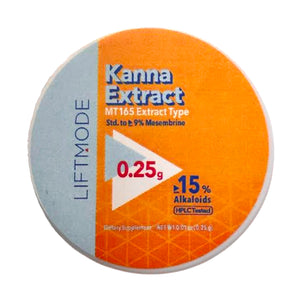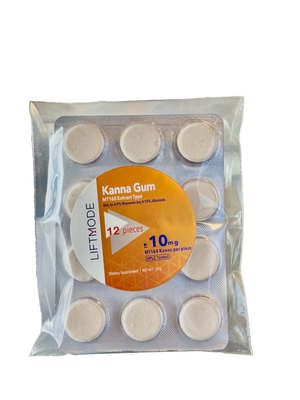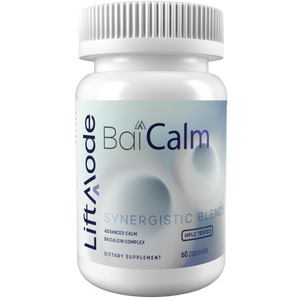Winter is upon us. The days are getting shorter and the nights longer. You might be finding yourself indoors more than usual and it’s that little bit harder getting to the gym or going for that run. Many people find that their mood starts to drop as winter sets in. This is usually a natural response to the shorter days and colder temperatures.
However, there are a number of things that you can do to help beat the low winter mood. In this article, we’ll explore some of the top methods of keeping your spirits up during winter.
![]()
Why do we feel down in winter?
There are four main reasons why we tend to feel down during winter.
-
Psychological reasons – it’s cold. It’s wet. You’d like to be lying on a beach somewhere soaking up the sun but instead you’re stuck indoors wrapped up in a blanket. Perhaps eating leftovers from yesterday because it’s just too cold to go out today. There is definitely a big psychological element to feeling down during winter, simply due to the shorter days and colder weather.[1]
-
Lack of exercise. It’s a lot easier to stay home and skip that run you were planning when its cold and dark outside than when it’s warm and sunny. Not doing enough exercise contributes to a lower mood.[2] You can fix this by going to a warm gym or even just doing some exercise in your house, near the fireplace.
-
Seasonal affective disorder (SAD) is a seasonal depression affecting roughly 10% of the American population. This clinical disorder is diagnosed by having normal mental health throughout most of the year but showing depressive symptoms during winter.
Symptoms of SAD include:
- Stress
- Sad mood and low energy
- Irritability
- Lethargy
- Withdrawal from social situations[3]
Treatment for SAD includes light therapy, psychotherapy, and medication. If you think you have SAD please talk to your doctor.[4]
-
Vitamin D deficiency. Vitamin D is the “sunshine” vitamin. Your body produces its own vitamin D but it requires a minimum amount of UV light to trigger this process. The best source (and, for most people, only source) of UV light is sunlight.Unfortunately, sunlight hours decrease dramatically during winter, leaving an estimated 1 billion people worldwide with vitamin D deficiency. Almost 50% of people on Earth are thought to be affected by vitamin D insufficiency at some point.[5] Vitamin D has a positive effect on improving your mood, especially during winter.[6]
What supplements can you take to improve mood in winter?
1. 5-HTP
[caption id=""attachment_1160"" align=""alignright"" width=""295""]
![]()
5-HTP powder from Liftmode.com, 99%+ purity[/caption]
5-HTP is the direct precursor to serotonin – the ‘happy’ transmitter. Scientists figured this out over decades of research and clinical trials. Diets that are low in tryptophan and 5-HTP result in reduced serotonin levels, which are accompanied by reduced mood and feelings of sadness.
[7]
Increasing your 5-HTP intake directly increases the amount of serotonin in your body. This has been shown to boost your mood significantly.
[8] Serotonin also has an important role in maintaining a healthy body. It is thought to influence your social behavior, digestion, appetite, sleep, memory, and sexual desire.
[9]
In a recent clinical trial, scientists suggested that Seasonal Affective Disorder is actually caused by decreased levels of serotonin in your body. According to the researchers, less light and colder temperatures cause your body to increase levels of serotonin transport (SERT) proteins. SERT proteins carry serotonin around your body. The higher the levels of SERT, the lower the levels of serotonin in your blood. The decrease in serum serotonin due to increased SERT protein activity is thought to trigger the onset of SAD.
[10]
2. L-Tryptophan
L-Tryptophan is another great dietary supplement to help boost your mood. Like 5-HTP, it also increases your serotonin levels – it is the precursor to 5-HTP. Not only this, but L-Tryptophan has been shown to help improve healthy sleep. The increased serotonin from 5-HTP and L-Tryptophan can be easily converted into melatonin in your brain.
[11]
[caption id=""attachment_1710"" align=""alignright"" width=""300""]
![]()
Did you know that a turkey's head changes color depending on how it's feeling?[/caption]
Melatonin is responsible for ensuring healthy sleep. It is produced by your pineal gland, partly in response to increased serotonin.
[12] Getting enough healthy sleep is very important for beating the low winter mood. L-Tryptophan supplements may help to promote healthy sleep in addition to supporting a good mood.
L-Tryptophan is an important amino acid and it’s found in a number of food sources, including turkey. It’s also found in many other meat products including chicken and minced beef. Other food sources like spirulina, spinach, eggs, and cheese actually contain more tryptophan than turkey.
[13]
Interestingly, the myth that eating turkey makes you drowsy was recently busted! Eating any large meal makes you drowsy because blood flow is channeled away from your brain and to your stomach to aid in digestion. The lack of blood and oxygen in your brain is what makes you drowsy.
[14] L-Tryptophan doesn’t make you drowsy but it does help promote healthy sleep.
3. DL-Phenylalanine
Phenylalanine is an active amino acid with a number of great benefits. The natural form is L-Phenylalanine, which is found in the highest quantities in:
- Soy protein
- Eggs
- Spirulina
- [15]
[caption id=""attachment_1042"" align=""alignright"" width=""300""]
![]()
Liftmode's DL-Phenylalanine, 99% purity[/caption]
Phenylalanine is very important for maintaining a healthy mood. Several studies have shown that insufficient quantities of Phenylalanine in your diet can result in lowered mood and increased stress.
[16]
D-Phenylalanine is a laboratory-made substance. In chemical terms, it is the ‘right-hand twist’ version of L-Phenylalanine. The molecules are very similar in chemical structure but the small difference has a big effect on how they work in your body. D-Phenylalanine is thought to have beneficial effects in reducing pain, especially chronic pain. It helps preserve molecules in your body called enkephalins, which are involved in the natural pain relief system.
[17]
DL-Phenylalanine is a combination of the two enantiomers– L-Phenylalanine and D-Phenylalanine. The combination gives you the benefits of taking both the different forms. It also seems to work synergistically to provide extra benefits like improved attention and focus.
[18]
4. Vitamin D
Vitamin D is the only vitamin that your body produces in response to sunlight. Like all vitamins, it is very important to the normal functioning of your body.
The discovery of vitamin D in 1913 spelled the end of the disease called rickets – a terrible bone disorder caused by a lack of vitamin D.
[19] Scientists now know that vitamin D is important for promoting optimum calcium use in your bones. It is also important for your kidneys, muscles, and immune system.
[20]
Although most vitamin supplements are
unnecessary to people with a healthy diet, vitamin D supplements may be beneficial to many people, especially during winter when sunlight hours are much lower than normal.
Increasingly, studies are examining the role of vitamin D in maintaining a healthy mood. A recent systematic review (looking at all the research on vitamin D and depression to date) indicated that vitamin D supplements may have a beneficial effect in promoting a healthy mood and preventing feelings of sadness. This was especially true in people who had insufficient vitamin D levels – most often because of a lack of sunlight.
[21]
[caption id=""attachment_1707"" align=""aligncenter"" width=""640""]
![]()
Dogs feel the cold too, you know![/caption]
What else can you do to beat the low winter mood?
1. Eat healthy!
[caption id=""attachment_1703"" align=""alignright"" width=""300""]
![]()
Healthy food can also be delicious like this lentil soup![/caption]
Trying to eat healthily can be difficult in winter. It’s easy to dial up the takeaway number from your warm couch and not have to think about cooking. However, eating healthy can have a really positive effect on keeping your spirits warm on cold days and helping to beat the low winter mood.
Studies have found that diets with high levels of
trans fatty acids have detrimental effects on your mood.
[22] Foods that are high in
trans fatty acids include:
- Dairy
- Meat-based products
- Vegetable oils
- Foods high in oil – donuts, pies, cakes, pizza
- Fat spreads[23]
Avoiding alcohol is another sure-fire way to keep your mood up during winter. While one or two drinks may not have a negative effect, any more than that and you’ll notice a decrease in your mood.
[24]
One study looked at the dietary patterns of nearly 3500 middle-aged participants. The participants answered questions about their diets and were grouped into either ‘whole-foods’ or ‘processed-foods’ as their primary diet. Not surprisingly, processed foods were identified as a risk factor for developing depression.
[25]
2. Try to get some exercise
It’s long been known that exercise affects your mood. Not getting enough exercise negatively affects your mood – something you’ll notice after even just one or two days. When you exercise, your body releases endorphins – natural opioids that create a ‘pleasure response’ to being healthy.
[caption id=""attachment_1704"" align=""alignright"" width=""300""]
![]()
Running in winter can be a beautiful experience[/caption]
The opioids are responsible for a number of psychological and physiological changes in your body. These include boosting your mood, reducing sensations of pain, and triggering your body to release a number of important hormones. Endorphins are also responsible for what scientists call ‘exercise-induced euphoria’.
[26]
According to a number of leading scientists, the ‘exercise-effect’ is a very strong psychological effect. As soon as five minutes after doing moderate to intense exercise, you’ll notice a significant increase in your mood.
[27]
Clinical studies have indicated that the best types of exercise for improving mood, regardless of your gender, age, or mental health are rhythmic, aerobic exercises.
To avoid negative effects on your mental health, you should aim to perform one or more of these exercises for at least 15 – 30 minutes, a minimum of three times per week:
- Jogging
- Swimming
- Running
- Walking
- Cycling[28]
3. Try to have some fun!
Having fun does wonders for your body and your mood! Numerous studies have shown that doing ‘fun’ activities increases the amount of serotonin in your brain, which is what we need to feel happy!
[29]
[caption id=""attachment_1705"" align=""alignright"" width=""300""]
![]()
Snowboarding is a great fun winter activity[/caption]
Also, most activities that you’d think of as fun involve some kind of physical exercise. This brings us back to our previous point about how exercise can help improve your mood.
Everybody’s idea of fun is different. Some people might love to go hiking, climbing or snowboarding in the winter. Others might prefer going out dancing, going to a show or hanging out with friends.
Whatever you enjoy doing, the point is to get out there and SMILE! Science has shown that simply smiling and laughing can dramatically increase the serotonin in your brain and help support a healthy mood.
[30]
4. Get enough sleep (but not too much)
Getting enough sleep is one of the most important aspects of beating the low winter mood. Hundreds of clinical studies have found a strong link between the quality of sleep that you get and your mood.
[caption id=""attachment_1315"" align=""alignright"" width=""300""]
![]()
Getting enough sleep is a great way to beat the winter blues[/caption]
In fact, according to top scientists, around three-quarters of depressed patients have symptoms of insomnia. Not getting enough sleep can be so distressing to our bodies and minds that researchers now believe it may be a trigger of major depression.
[31]
A recent review found that the sleep patterns of your spouse or partner can indirectly affect your mood. Furthermore, being more sociable was correlated to better sleep and better mood – having more fun helps you sleep better and improves your mood.
[32]
While getting enough sleep is very important to maintaining a healthy mood, too much sleep can negatively affect your physical and mental health, especially over winter.
One massive study on over 24’000 participants found that “longer sleepers” were more likely to have psychiatric diseases and a higher BMI. The recommended healthy sleep time is around 7-8 hours per night, with slightly shorter nights for the elderly. Making sure you get this amount of sleep will definitely help beat the low winter mood.
[33]
Conclusion
[caption id=""attachment_1297"" align=""alignright"" width=""290""]
![]()
Liftmode's L-tryptophan, 98+% purity[/caption]
In summary, there are a number of methods that you can use to beat the low winter mood as the weather gets colder. In terms of things to do, keeping active and making sure you go out and visit friends or do hobbies will keep your mind strong and your spirits up. Avoiding processed foods and alcohol and getting enough sleep are two more great methods to beat the winter blues.
Apart from that, you can also use some great healthy and dietary supplements for a healthy mood. The best supplements to support a healthy mood include 5-HTP, DL-Phenylalanine, and L-Tryptophan.
Medical Disclaimer
Not intended to treat, diagnose, or cure any disease or ailment. Please read and fully understand potential adverse effects before using this product. These statements have not been reviewed by the FDA and are not written by a medical professional. Please consult your doctor before using any supplements, especially if you have any medical conditions. Tristan
B.Sc. in Molecular Biology and Biochemistry Researched & written by
Tristan and verified by the Liftmode.com Research Team
References:
[1] The Effects of Winter on Moods, Strategic Psychology online, retrieved on December 9, 2016
[2] Exercise for Mental Health, A Sharma et al., Prim Care Companion J Clin Psychiatry. 2006; 8(2): 106.
[3] Melrose S. “
Seasonal Affective Disorder: An Overview of Assessment and Treatment Approaches.” Depression Research and Treatment 2015 (2015): 178564. PMC. Web. 9 Dec. 2016.
[4] Seasonal Depressive Disorder, Mayo Clinic Staff, Mayo Clinic online, retrieved on December 9, 2016
[5] N Rathish, and A Maseeh. “
Vitamin D: The ‘sunshine’ Vitamin.” Journal of Pharmacology & Pharmacotherapeutics 3.2 (2012): 118–126. PMC. Web. 9 Dec. 2016.
[6] Jorde R, et al.
Effects of vitamin D supplementation on symptoms of depression in overweight and obese subjects: Randomized double blind trial. J Intern Med. 2008;264:599–609
[7] SN Young, “
The role of serotonin in human mood and social interaction. Insight from altered tryptophan levels”, Pharmacology Biochemistry and Behavior Volume 71, Issue 4, April 2002, Pages 857–865
[8] TC Birdsall, “
5-Hydroxytryptophan: a clinically-effective serotonin precursor”, Altern Med Rev. 1998 Aug;3(4):271-80.
[9] J McIntosh, “
Serotonin: Facts, What Does Serotonin Do?”, Medical News Today, Knowledge Center, available online, retrieved on December 9, 2016
[10] H Whiteman, “
Seasonal depression 'caused by increased levels of serotonin transporter protein'”, Medical News Today, Knowledge Center, available online, retrieved on December 9, 2016
[11] DM Richard et al.,
L-Tryptophan: Basic Metabolic Functions, Behavioral Research and Therapeutic Indications, Int J Tryptophan Res. 2009; 2: 45–60. Published online 2009 Mar 23.
[12] R Bowen, “
The Pineal Gland and Melatonin”, March 2013, Colombo State University online, retrieved on December 9, 2016
[13] Foods highest in Tryptophan, SELF Nutrition Data, available online, retrieved on December 9, 2016
[14] RC Vreeman, “
Medical myths”, BMJ. 2007 Dec 22; 335(7633): 1288–1289, PMC2151163
[15] Foods highest in Phenylalanine, SELF Nutrition Data, available online, retrieved on December 9, 2016
[16] M Leyton et al., “
Effects on mood of acute phenylalanine/tyrosine depletion in healthy women”, Neuropsychopharmacology. 2000 Jan;22(1):52-63.
[17] NE Walsh et al., “
Analgesic effectiveness of D-phenylalanine in chronic pain patients”, Arch Phys Med Rehabil. 1986 Jul;67(7):436-9.
[18] DR Wood et al., “
Treatment of attention deficit disorder with DL-phenylalanine”, Psychiatry Res. 1985 Sep;16(1):21-6.
[19] HF DeLuca, “
Overview of general physiologic features and functions of vitamin D”, Am J Clin Nutr December 2004, vol. 80 no. 6 1689S-1696S
[20] The Role of Vitamin D in Your Health, Cleveland Clinic online, retrieved on December 9, 2016
[21] S Spedding, “
Vitamin D and Depression: A Systematic Review and Meta-Analysis Comparing Studies with and without Biological Flaws”, Nutrients. 2014 Apr; 6(4): 1501–1518, PMC4011048
[22] Almudena Sánchez-Villegas et al., “
Dietary Fat Intake and the Risk of Depression: The SUN Project”, PLoS One. 2011; 6(1): e16268, PMC3027671
[23] Food Fact Sheet: Trans Fats, The Association of UK Dietitians, available online:
https://www.bda.uk.com/foodfacts/TransFats.pdf
[24] Alcohol and mental health, Drink Aware, drinkaware.co.uk, retrieved on December 9, 2016
[25] TN Akbaraly, “
Dietary pattern and depressive symptoms in middle age”, Br J Psychiatry. 2009 Nov; 195(5): 408–413, PMC2801825
[26] VJ Harber, JR Sutton, “
Endorphins and exercise”, Sports Med. 1984 Mar-Apr;1(2):154-71.
[27] K Weir, “
The exercise effect”, American Psychological Association, December 2011, Vol 42, No. 11
[28] Guszkowska M, “
[Effects of exercise on anxiety, depression and mood] (article in Polish)”, Psychiatr Pol. 2004 Jul-Aug;38(4):611-20.
[29] EE Forbes, “
Where’s the Fun in That? Broadening the Focus on Reward Function in Depression”, Biol Psychiatry. 2009 Aug 1; 66(3): 199–200, PMC2801741
[30] R Torta et al., “
[Laughter and smiling. The gesture between social philosophy and psychobiology], (article in Italian)”, Minerva Psichiatr. 1990 Jan-Mar;31(1):21-6.
[31] D Nutt, “
Sleep disorders as core symptoms of depression”, Dialogues Clin Neurosci. 2008 Sep; 10(3): 329–336, PMC3181883
[32] ST Moturu, “
Sleep, mood and sociability in a healthy population”, Conf Proc IEEE Eng Med Biol Soc. 2011;2011:5267-70.
[33] D Leger, “
The Risks of Sleeping “Too Much”. Survey of a National Representative Sample of 24671 Adults (INPES Health Barometer)”, PLoS One. 2014; 9(9): e106950, PMC4165901




